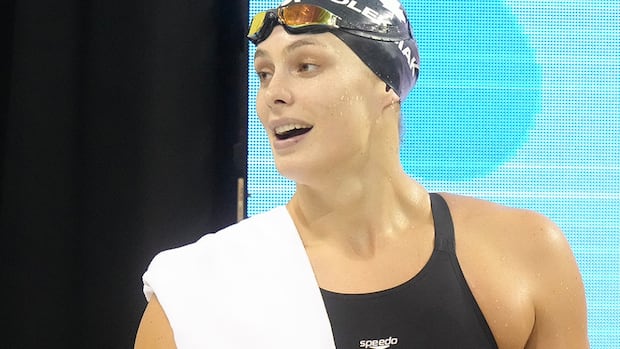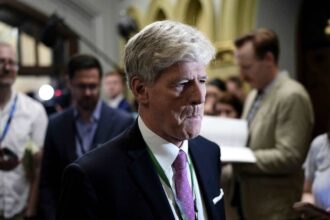In a stunning development that has sent ripples through Canada’s swimming community, Olympic champion Penny Oleksiak has been issued a notice for a potential anti-doping rule violation—not for testing positive for prohibited substances, but for failing to meet the stringent whereabouts requirements essential for out-of-competition testing.
The Canadian Olympic Committee confirmed on Thursday that Oleksiak, Canada’s most decorated Olympian with seven medals across two Summer Games, has been flagged for missing three tests or filing failures within a 12-month period. This administrative violation could potentially result in a suspension of up to two years, though first-time offenders typically receive reduced penalties.
“While this is certainly not a case of performance-enhancing drug use, the whereabouts filing system remains a critical component of maintaining competitive integrity,” explained Richard Powers, a sports governance expert from the University of Toronto. “Athletes at Oleksiak’s level must update their location information regularly to ensure they remain available for random testing.”
Under the World Anti-Doping Agency’s guidelines, elite athletes must provide detailed quarterly schedules indicating where they’ll be each day, including a specific 60-minute window when they guarantee availability for testing. This system, while administratively demanding, serves as the backbone of out-of-competition testing—widely considered the most effective deterrent against doping in high-level sports.
Oleksiak, who catapulted to national fame after winning four medals at the 2016 Rio Olympics at just 16 years old, has maintained a pristine reputation throughout her career. Sources close to the situation indicate the missed tests were likely administrative oversights rather than deliberate evasion tactics.
The timing poses significant concerns for the 24-year-old Toronto native, who was expected to compete at the upcoming World Aquatics Championships in Singapore this December. Depending on the timing of proceedings, Oleksiak’s participation remains uncertain as Canadian officials await further details on the case.
“The psychological impact of facing such allegations, even administrative ones, shouldn’t be underestimated,” noted Dr. Samantha Lee, a sports psychologist who works with Olympic athletes. “For competitors at Oleksiak’s level, reputation and competitive opportunities are deeply intertwined with their identity.”
Swimming Canada has yet to issue a comprehensive statement beyond acknowledging awareness of the situation, noting they are “gathering information and will respect the integrity of the process.” The organization emphasized their commitment to clean sport while requesting privacy for Oleksiak during this challenging period.
This case highlights the complex burden placed on elite athletes who must balance rigorous training schedules with exacting administrative requirements. While the whereabouts system successfully catches those attempting to evade testing, it occasionally ensnares athletes who simply struggle with the demanding compliance procedures.
As the Canadian sports community awaits further developments, this situation raises important questions about the balance between maintaining strict anti-doping protocols and the administrative burden placed on athletes. How might sports governing bodies evolve these systems to maintain effectiveness while recognizing the intense demands already placed on elite competitors?

























